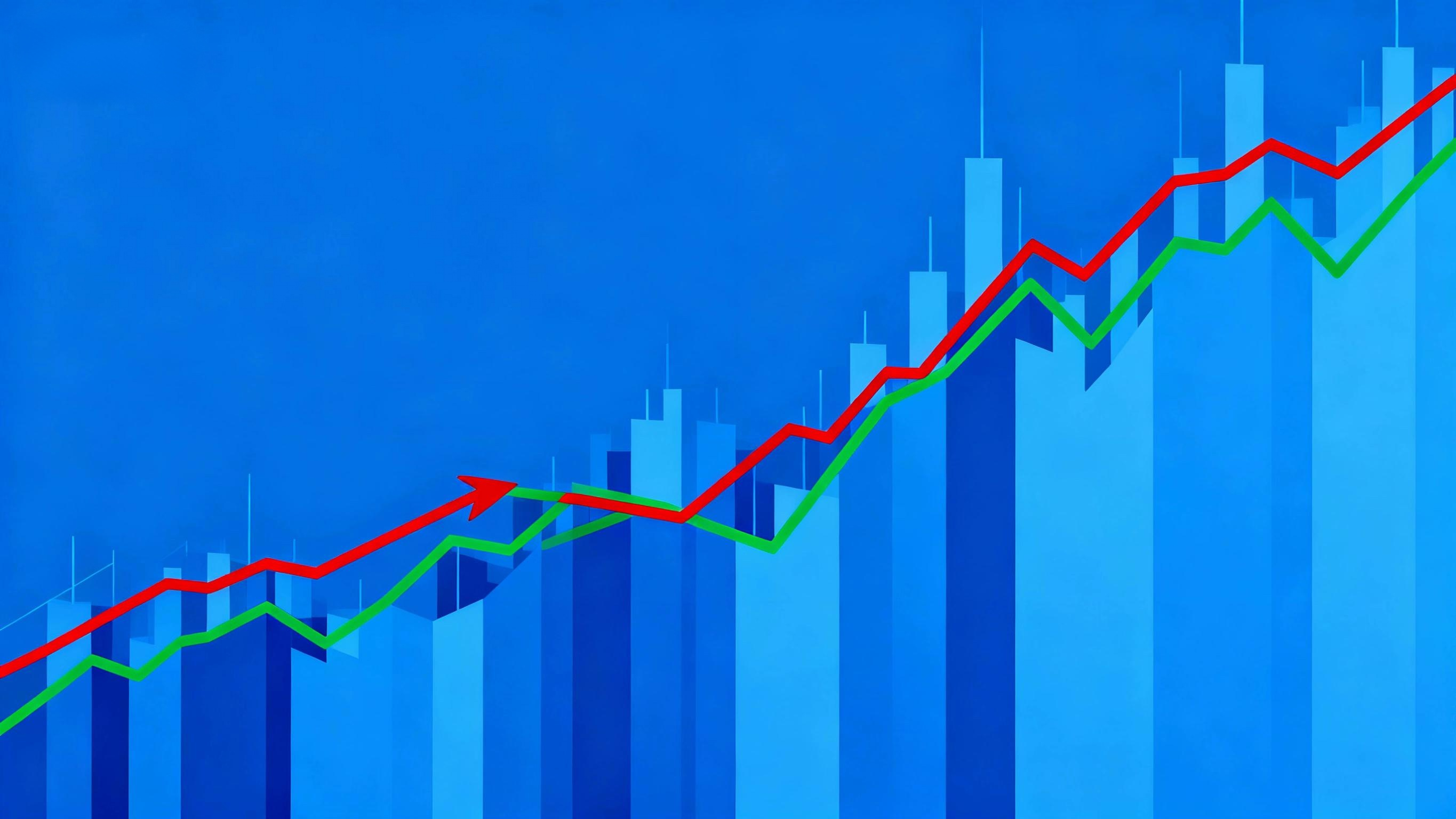
We are covered in dust and scars, but we still must, and do, believe in time.
Last week, the Shanghai Composite Index briefly broke through the 3,900-point mark, hitting a 10-year closing high. However, A-shares show extreme style divergence: the STAR 100 Index has surged over 60% year-to-date (as of October 9th, same below), while the Dividend Index has fallen nearly 8%. The performance gap between these two major indices is close to 70%, with 500 individual stocks doubling in price.
Many investors who underperformed the market might feel tormented by this. But in the stock market, the notion that the money others make is the money you lose is not a beneficial attitude. It can lead investors to lose rationality and blindly buy stocks they shouldn't hold. The most important thing in investing is not to deviate from one's investment discipline under any market conditions and to achieve financial goals with the lowest possible risk.
Harmful Thoughts
A-shares have shown extreme style divergence this year. The STAR 100 Index and the STAR 50 Index have risen by 61% and 56% respectively, while the Dividend Index has fallen by 7.19% year-to-date. The corresponding price-to-earnings ratios for the STAR 100 and STAR 50 Indices are 300 times and 200 times respectively, whereas the Dividend Index's P/E ratio is only 7.5 times.
Approximately 500 stocks have doubled in price this year, accounting for nearly 10% of the total. In such market conditions, investor frustration and envy are inevitable. "Hiding from the bull market in XX" has become a popular meme. But in the stock market, thinking that the money others make is the money we lose is not a helpful attitude. In fact, this attitude only makes people irrational. The more stocks you know about, the more big winners you discover you missed, and the more you blame yourself for missing out on substantial gains.
Legendary fund manager Peter Lynch once said: "This may sound like a very ridiculous, insignificant thing, but I know many of my friends who invest in stocks often suffer from this painful torment: they carefully look at the 'top ten gainers' while thinking about the huge amount of money they missed out on by not buying these big winners."
The worst part of this thinking is that it leads people to blindly buy stocks they shouldn't buy in pursuit of the highest returns, just to avoid "losing" a large sum of money like they did before by missing out on big winners. Such blind investing often leads to actual losses, not just psychological losses from missing out.
During the South Sea Bubble of 1720, Newton paid a heavy price for this. He had invested in the South Sea Company's stock before its big rise and exited a few months later with a hefty profit of over 100%. But his friends continued to make even higher profits from the South Sea stock after he left. Newton eventually relented and bought back in near the peak, ultimately losing £20,000 (equivalent to Newton's total salary for 10 years).
Nothing disturbs one's happiness and judgment more than seeing friends get rich. But envy offers no positive return, only negative risk. If you watch others become wealthy as their stock prices soar and do not ignore or avoid this temptation, you might suffer greatly from the fear of missing out.
Successful investing is not about who can deliver the highest returns, nor is it about who can make more money. It's about achieving our financial goals with the lowest possible risk.
Hold Fast to the Core Principles
The principle of investment is what Buffett called "Rule No. 1: Never lose money. Rule No. 2: Never forget rule No. 1." A major reason why bull markets cause many investors to lose money is that continuously rising stock prices largely strip away investment caution. Funds flow into overvalued, low-quality stocks, amplified by leverage. Once the trend reverses, it leads to heavy losses.
Outstanding investment masters are all excellent rejecters. Their core principles never change under any market conditions:
1. A stock is not just a trading code or an electronic signal; it represents ownership in an actual business. The value of the business does not depend on its stock price.
2. The future value of any investment is a function of its current price. The higher the price you pay, the lower your return.
3. The market is like a pendulum, forever swinging between fleeting optimism (which makes stocks too expensive) and unjustified pessimism (which makes stocks too cheap). Intelligent investors are realists who sell to optimists and buy from pessimists.
4. No matter how careful one is, every investor will make mistakes. You can only minimize the odds of error by adhering to what Graham called the "Margin of Safety" - never pay too high a price for an investment, no matter how exciting it seems.
5. The secret to investment success lies within yourself. If you approach problems critically and invest with steadfast confidence, you will achieve steady gains, even in bear markets. By cultivating discipline and courage, you won't let emotional fluctuations dictate your investment goals. In the end, how you invest is far less important than how you behave.
6. Short-term underperformance relative to the market is not a cause for concern; the most important thing is avoiding significant losses over the long term. Among those investors who have consistently outperformed the market over the long term, the vast majority are those who follow the above principles. Although there are also many investors who do not follow value investing principles, most of them only perform well for a certain period.
















